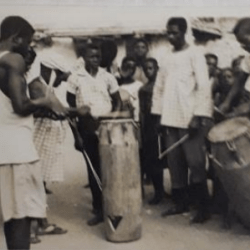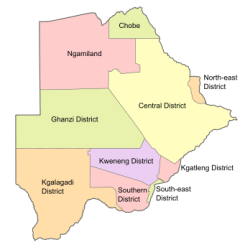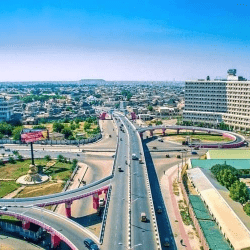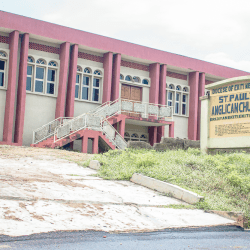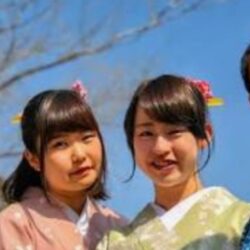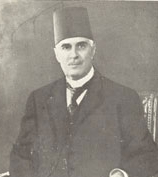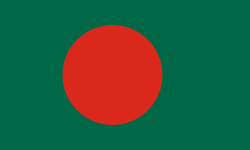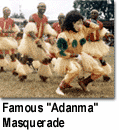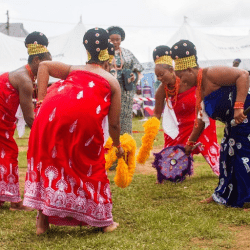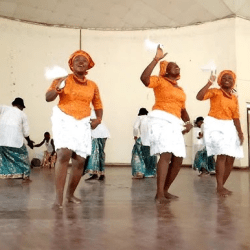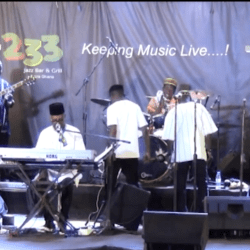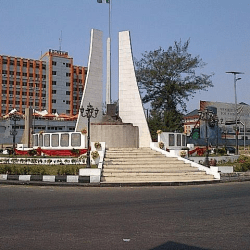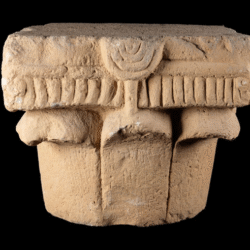Tishrei Holidays in Jerusalem: Selichot, Sukkot & Cultural Events Guide
Celebrate Tishrei 2025 in Jerusalem with selichot concerts, festivals, the Mayor’s Sukkah, and the Jerusalem March. Discover sacred traditions, music, and unity.
Tishrei Holidays: Sacred Celebrations in the Heart of Israel
Each year, the Hebrew month of Tishrei transforms Jerusalem into a vibrant, spiritual, and cultural mosaic, uniting residents and visitors through sacred traditions and festive events. As the Selichot capital of Israel and a central pilgrimage site, Jerusalem welcomes people of all ages to celebrate the High Holidays with reverence, joy, and a sense of community. In 2025, the Jerusalem Municipality is once again orchestrating a rich program of selichot performances, cultural festivals, and religious observances, ensuring a powerful and memorable experience for all.
The Spiritual Significance of Tishrei
Tishrei is one of the most spiritually profound months in the Jewish calendar. It begins with Rosh Hashanah, the Jewish New Year, followed by the solemn Day of Atonement—Yom Kippur—and culminates with the joyous festivals of Sukkot and Simchat Torah. These holidays embody themes of reflection, renewal, and rejoicing.
What is Tishrei in the Hebrew Calendar?
Tishrei, the seventh month of the Hebrew year, holds some of Judaism’s most sacred days. From the introspective prayers of Rosh Hashanah and Yom Kippur to the outdoor celebrations of Sukkot, the entire month is infused with spiritual elevation. It is a time when the Jewish people come together in prayer, repentance, and ultimately, celebration.
Why Jerusalem Becomes the Center of Pilgrimage During Tishrei
Jerusalem, with its deep-rooted historical and religious significance, becomes the heart of Jewish pilgrimage during Tishrei. Families from across Israel and around the world make their way to the capital to participate in meaningful traditions, attend large-scale events, and immerse themselves in the city’s unique blend of ancient and modern culture.
Selichot Season in the Selichot Capital
Selichot Traditions and Meaning
Selichot are penitential prayers recited in the days leading up to Yom Kippur. These prayers are often sung late at night or in the early morning hours and serve as spiritual preparation for the High Holidays. In Jerusalem, the tradition of Selichot is not only preserved but celebrated through music, art, and communal prayer.
Top Selichot Events in Jerusalem
- First Selichot with Yitzhak Meir at Binyanei HaUma: This moving event marks the beginning of the Selichot season with inspiring musical prayer and deep spiritual energy.
- ‘Selichot Jerusalem’ at the Sultan’s Pool: Featuring star-studded performances by David Daor, Shlomi Shabbat, Ehud Banai, Eden Hasson, and Mosh Ben Ari, this massive outdoor concert blends modern music with ancient texts in a magical setting.
- East West Orchestra Show at Safra Square: Conducted by Tom Cohen and featuring Binyamin Buzaglo, Shai Tsabari, Miri Mesika, and Shiri Maimon, this performance fuses Eastern and Western musical traditions in a powerful tribute to the season.
Cultural Fusion: Sacred Meets Secular
Evening Chill and Spiritual Warmth – Jerusalem in Autumn
As the sun sets over Jerusalem, a crisp autumn breeze fills the air, creating a serene atmosphere that heightens the spiritual ambiance of the city. Evenings are cool, so visitors are advised to bring a warm layer as they explore outdoor events and late-night Selichot services.
Synagogue Music: Piyyutim and Community Singing
Throughout the city’s neighborhoods, synagogues open their doors for communal singing of piyyutim—liturgical poems—and selichot. These intimate gatherings offer a deeply moving experience that connects participants to centuries-old traditions.
Must-Visit Events During Tishrei
The Mayor’s Sukkah – World’s Largest Public Sukkah
Located in Safra Square, the Mayor’s Sukkah is the largest in the world. Open to the public, it serves as a central gathering space for festive meals, musical performances, and community blessings. It’s a must-see and a symbol of Jerusalem’s inclusive celebration.
The Market of the Four Species – A Unique Experience
In preparation for Sukkot, the city hosts Israel’s largest market for the Arba Minim (Four Species)—etrog, lulav, hadas, and aravah. This vibrant market attracts thousands of shoppers and provides a unique cultural experience rooted in ancient tradition.
Jerusalem Art, Culture, and Sustainability Festivals
Beyond religious observance, Jerusalem celebrates Tishrei with art installations, environmental festivals, and cultural showcases. These events reflect the city’s modern spirit and its commitment to creativity and sustainability.
Spotlight: The 68th Traditional Jerusalem March
History and Importance of the Jerusalem March
The Jerusalem March is a beloved tradition that brings together tens of thousands of participants from Israel and abroad. Started in 1955, this colorful parade symbolizes unity and peace.
What to Expect at the 2025 Parade
The 68th edition promises an even grander spectacle, featuring international delegations, costumed dancers, musicians, and flag bearers. Families, tourists, and locals line the streets to cheer on the vibrant procession.
Family-Friendly Holiday Activities
Events for Children, Parents, and Grandparents
The Jerusalem Municipality has carefully curated programs that cater to every age group. From storytelling and puppet shows to guided tours and interactive workshops, there’s something for every member of the family to enjoy.
Tips for a Comfortable Visit with Kids
Parents are encouraged to bring snacks, water, and warm layers for the evenings. Many event venues offer stroller-friendly access and family rest areas to ensure a smooth and enjoyable experience for all.
Practical Tips for Tishrei Visitors
What to Pack: Day and Night in Jerusalem
Weather in Tishrei can be variable—warm during the day and cool at night. Pack light clothing for the daytime, a warm jacket for evenings, comfortable walking shoes, and any religious items you may need for prayer.
Transportation and Parking During the Holidays
While public transportation is available, many areas may experience congestion. Visitors arriving by car can park at HaLeom parking garage and take the free shuttle to the Knesset or Safra Square. Always check event-specific travel updates.
Accommodations in the Capital
Where to Stay During the High Holidays
Jerusalem offers a wide range of accommodations, from boutique hotels in the Old City to modern apartments and budget-friendly hostels. Booking early is essential during the busy Tishrei season.
Booking Tips for Peak Season
Look for accommodations that are within walking distance of major event venues. Use official tourism platforms or reputable hotel booking sites to secure your reservation. Early booking ensures better rates and availability.
A Month of Unity and Celebration
Bridging Generations Through Shared Tradition
The beauty of the Tishrei holidays lies in their ability to bring people together across generations. In Jerusalem, grandparents, parents, and children all find meaning and joy in the shared rituals, music, and celebrations.
The Role of Music, Prayer, and Community
From sacred chants to modern melodies, from solemn prayer to joyous parades, the essence of Tishrei in Jerusalem is unity. It’s a time to reflect, rejoice, and reconnect—with heritage, with community, and with oneself.
Experience the Soul of Israel This Tishrei
Tishrei 2025 in Jerusalem promises to be an unforgettable journey of spirit and celebration. Whether you come for prayer, culture, music, or simply to be part of something larger than yourself, the Holy City offers a transformative experience that blends the sacred with the joyous. Don’t miss the opportunity to celebrate the Jewish New Year in the heart of Israel.

FAQs
1. When is Tishrei on the Gregorian calendar?
Tishrei corresponds to late September through October. Exact dates vary each year.
2. Are Selichot events free to attend?
Some Selichot events in Jerusalem are free, while others may require tickets. It’s best to check the Jerusalem Municipality’s event listings in advance.
3. Can non-Jewish tourists attend the events?
Yes, most events are open to all and offer a unique cultural experience, regardless of religious background.
4. What is the Mayor’s Sukkah, and who can visit?
The Mayor’s Sukkah is the world’s largest public sukkah located at Safra Square. It is open to all visitors during Sukkot.
5. Where can I find updated event schedules and maps?
Visit the official Jerusalem Municipality website or the city’s tourism site for current event schedules, maps, and visitor information.
